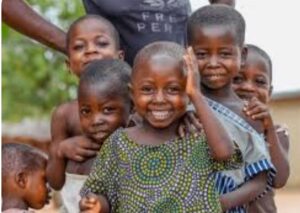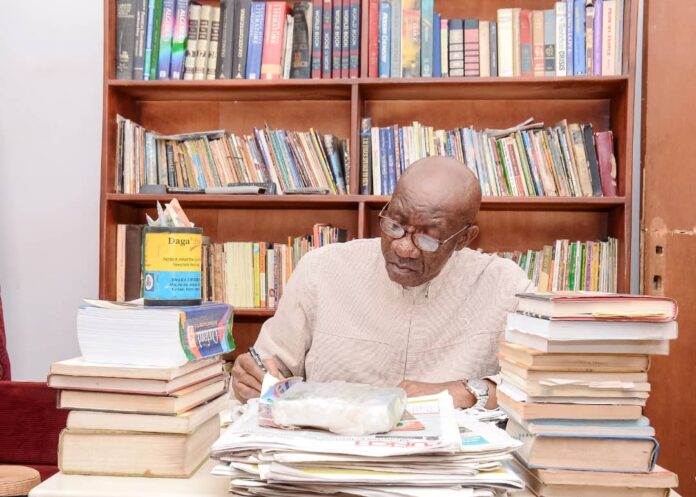Willie Eyo
On June 16 every year, governments, NGOs, international organisation and other stakeholders gather to discuss the challenges and opportunities facing the full realization of the rights of children in Africa.
By Willie Eyo
The international day of the African child is celebrated on the 16th of June every year since 1991 when it was initiated by the organisation of African unity ( OAU) now rebranded “AFRICAN UNION”.
The Theme for this year’s celebration is “Education for all children in Africa: the time is now.
The celebration aligns with the African Union’s year of education which focuses on building resilient education systems to ensure increase access to inclusive, life long quality and relevant learning in Africa.
Every child needs someone who’s on their side, someone who cares about what happens to them and work to ensure the highest good.
The idea behind the concept of the celebration is to recognise and honour the slain black heroes who met their untimely death in the hands of White minority Apartheid police bullets on the 16th of June 1976 in Soweto, South Africa.
The celebration is also significant as it is recognised throughout the world as an opportunity to reflect on progress toward health, education, equality, and protection for all the continent’s children.
It’s therefore not surprising to see the position African Union has taken vis- sa- vis this year’s celebration, which focuses on building a resilient education systems.
We salute the untiring role of this august body towards improving the educational standard in Africa.
The then white minority regime of South Africa exhibited an unprecedented level of marginalisation against the black majority in every dimension of life.
The blacks were subjected to an all round class treatment the education sector not withstanding.

The African child
In 1953, the Apartheid government enacted the Bantu education act, a development that led to the establishment of a black education department in the department of native affairs.
The role of this department was to compile a curriculum that suited the nature and requirements of the black people.
The author of the legislation, Dr Hendrick Verwoerd ( then minister Native affairs) later prime minister stated, “NATIVE (BLACKS) MUST BE TAUGHT FROM AN EARLY AGE THAT EQUALITY WITH EUROPEAN ( whites) IS NOT FOR THEM”
Black people were not entitled to receive an education that would lead them to aspire to positions they wouldn’t be allowed to hold in society.
Instead they were to receive education designed to provide them with skills to serve their own people in the home land or to work in labouring jobs under the whites.
The Bantu system of education relegated to the background the system of education the missionaries brought to Soweto.
The few children who had the opportunity to go to school were subjected to over crowded classrooms. One teacher was to oversee a classroom of over sixty children. The teachers themselves were half-baked. These and more were some of the glaring challenges an average South African black child was subjected to.
The 16th June 1976, recorded the event that is being celebrated today as the day of the African child.
The Soweto up rising was founded as African students could no longer tolerate the very oppressive conditions that they were subjected to by the whites minority rule.
At about 7am on the fateful day( 16th June 1976), thousands of African school students in Soweto gathered at a prearranged location, thus the birth of the Soweto uprising.
They launched a movement that began in opposition to the imposition of Afriaans as a medium of instruction in African schools.
This movement cost the lives of more than 1000 youths. Like an earthquake, it opened up a huge fissure in South Africa history, separating one era from another.
It politicised a whole new generation of youth and cosigned beyond recall the era of defeats in the 1960″s. It announced the determination of the youth to end one of the most barbaric examples of modern capitalist slavery.
By 1975, less than 10% of black African students were receiving secondary education and 0.24% were in their final year.
This brings into focus the Theme of this year’s celebration, “EDUCATION FOR ALL CHILDREN IN AFRICA: The TIME IS NOW”.
The need to focus on developing literacy in African countries has become very imperative. There are 34 million out of school children in Africa by the year 2019.
Nigeria the giant of Africa takes the lead with over 10.5 million out of school children age 5-14.Even though primary education is officially free and compulsory.
One in every five of the world out of school children is in Nigeria. This very sad development calls for urgent and immediate action to curb the unfortunate trend.
I urge the institute of Government whose responsibility is it to redouble their efforts towards redeeming the Nigeria nation from the clutches of illiteracy as we join the rest of the world to celebrate this global event.
Our heart also goes for the fallen heroes of June 16th 1976. We salute their unqualified show of courage that placed South Africa in celebrated platform today.
African parents must wake up and brace the challenges of the moment by sending their children to school.
So much lip service has been made, we need to put our words into action.
Make learning a clear and observable priority in your life and those of our children.
No matter your profession the changing world demands making significant and continuing attempt to learn and update ourselves in our areas of specialisation.
Kids need heroes and role models whoes example they want to follow.
These days most heroes come from sports and entertainment.
Parents can help counter often less than positive influence by calling attention to people who have achieved success through education and the development of their minds.
I want to use this medium to solicit for a change of mindset by our individual parents towards the educational wellbeing of their children.
The need for parents to be actively involved in monitoring their children’s homework, help the child when it becomes necessary, support the PTA in the area of prompt payment of levies.
The need to draw the children’s attention to role models like Chinua Achebe, Cyprain Ekwensi, Wole Soyinka, Ngozi Okonjo Iweala etc.
Parents should also buy and read books to the children. These are some of things that can encourage the child to become successful in life.
Much as television viewing is encouraged, parents must make sure children don’t abuse the privilege. Excessive television viewing has done so much harm to most children’s academic career.
We also want to appreciate our teachers for their contributions towards the leaders of tomorrow.
Everyone claims to believe teaching is a worthy profession. But that is a lip service. Our teachers need to be encouraged by being properly enumerated, by so doing our children will be accorded the best in terms of knowledge impartation.
I hereby wish to congratulate children all over the world as they celebrate this great event.
LONG LIVE THE AFRICAN CONTINENT.
Willie Eyo is an Author and Educationist wrote in from Abuja.
Share your thoughts on the Story Author Willie Eyo Writes On Int’l Day Of The African Child with Nigerian Kicker in the comments section.






